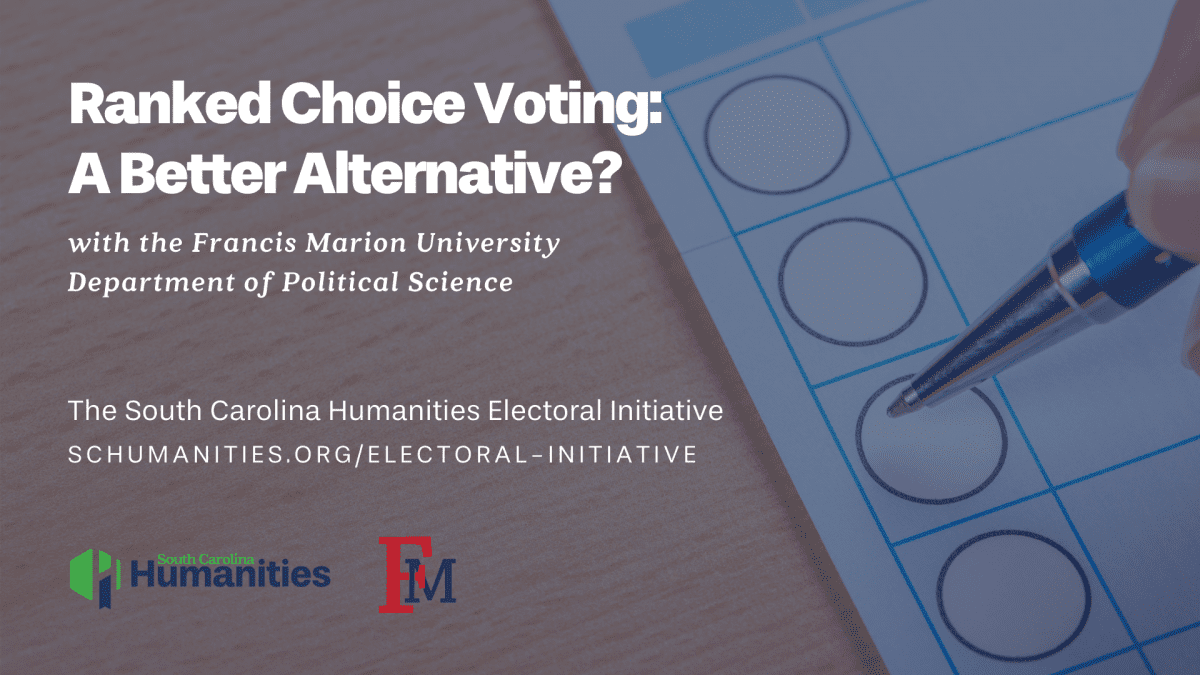South Carolina Humanities and the University of South Carolina are pleased to present “Ranked Choice Voting; A Better Alternative?” – one of eleven virtual programs in the South Carolina Humanities Electoral Initiative. The live, virtual forum will take place at 7:00 PM on Monday, February 15, 2021. Dr. Richard Almeida, Dr. Lauren Perez, and Dr. Dillon Tatum will discuss the positive and negative impacts of increasing voter input into the political system via ranked-choice voting. Ranked-choice voting is used in local elections in more than 20 U.S. cities and in statewide elections in Maine. It allows voters to indicate their order of preference for all candidates running for an elective office. Click here to register for the program. If you view the program, please click here to take our brief survey.
The South Carolina Humanities Electoral Initiative is part of a national initiative entitled “Why It Matters: Civic and Electoral Participation” administered by the Federation of State Humanities Councils and funded by The Andrew W. Mellon Foundation. Through “Why It Matters,” 43 humanities councils will explore the history, importance, and impact of the American electoral process.
Dr. Richard Almeida is the John Monroe Johnson Holiday Associate Professor of Political Science at Francis Marion University. He specializes in American political behavior (interest groups and voting), formal political theory, and classical political thought. His primary research interest involves formal models of lobbying coalitions.
Dr. Lauren Perez is an Assistant Professor of Political Science at Francis Marion University. Her research and teaching compares institutions across countries, examining how their differences affect outcomes and policy-making processes. Her research focuses on legislative processes in the European Union.
Dr. Dillon Tatum is an Assistant Professor of Political Science at Francis Marion University. His research interests focus on international relations theory, global social and political theory, and security studies. His current research examines liberalism’s connection to international political violence since the mid-nineteenth century.
The mission of SC Humanities is to enrich the cultural and intellectual lives of all South Carolinians. Established in 1973, this 501(c) 3 organization is governed by a volunteer Board of Directors comprised of community leaders from throughout the state. It presents and/or supports literary initiatives, lectures, exhibits, festivals, publications, oral history projects, videos and other humanities-based experiences that directly or indirectly reach more than 250,000 citizens annually.
